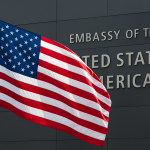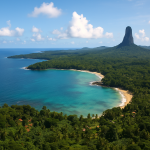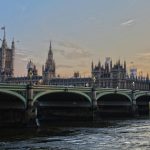Antigua and Barbuda – The Number One Choice for Second Citizenship
Dubbed the “heart” or “gem” of the Caribbean because of its strategic location in the middle of the Leeward island chain, the independent Commonwealth state of Antigua and Barbuda comes very close to many people’s idea of paradise. This ideal geographic positioning makes the tropical twin-island jewel a regional travel hub, with excellent air links to North America and Europe. Home to over 100,000 people and blessed with 365 powder-white sand beaches, the country is revered as one of the most beautiful places in the world. Historically, as a result of tourism and real estate, Antigua and Barbuda have experienced continuous growth in Foreign Direct Investment (FDI). However, more recently, financial services, tertiary education, and e-commerce have become significant contributors. Bolstered by generous government incentives, foreign investment has contributed to the rapid development of the economy, resulting in the country having one of the highest Gross Domestic Product (GDP) per capita in the sub-region. Antigua and Barbuda, along with seven other states, is a member of the Eastern Caribbean Currency Union (ECCU), a development of the Organization of Eastern Caribbean States (OECS), which uses the Eastern Caribbean dollar (EC) as its currency. The EC has been pegged to the United States dollar for the last 40 years, contributing to long-term financial stability.
WHY WAS THE ANTIGUA AND BARBUDA PROGRAMME ESTABLISHED?
Like many countries around the world, Antigua and Barbuda were adversely affected by the 2008 economic crisis. Tourism, the main driver of the economy, began to experience a decline in visitors from the country’s source markets, namely Europe, the United Kingdom and the United States. After considering various options to jumpstart the economy, the government saw the Citizenship by Investment Programme (CIP) as the most effective way to re-attract FDIs, renew interest in the real estate market and spur investment in the general economy. Just a few months shy of its fifth birthday, the Antigua and Barbuda CIP is still a relatively new entrant into the economic investment arena. However, it has become very popular with investors owing to its straightforward and transparent application process, fast turnaround time and the quality of real estate offerings. The reduction in processing fees in August 2017, gives the Programme an additional competitive advantage. After the devastation of Barbuda, the smaller, lesser-populated of the two islands by Hurricane Irma in September 2017, a further decision was taken by the government to decrease the National Development Fund (NDF) contribution for a limited time period*. This, the government feels, will allow for the allocation of the estimated US$200 Million urgently needed to rebuild a stronger, greener Barbuda, and simultaneously reducing carbon footprints.
WHEN WAS THE PROGRAMME ESTABLISHED?
The Antigua and Barbuda CIP Act was passed in April of 2013. The Citizenship by Investment Unit (CIU), a creature of the legislation, was staffed on August 26, 2013 and opened for business on October 10, 2013. The first application was received in November of that year and the first citizenship granted in February of 2014. The Act allows for anyone 18 years and older and/or his family, who commits to making an investment under one of three options, to apply for citizenship WHAT IS THE FUNCTION OF THE CIU? The CIU is responsible for processing applications and for recommending the approval of real estate and business investment options. There are a few factors that contribute to the rapid success of the Programme, which includes the Unit’s highly competent staff, comprising mostly of private sector individuals. With a turnaround time of about 60 days, the CIU quickly became one of, if not the most efficient Unit in the region, surpassing countries that had been in the industry for far longer or just prior to its entry. Secondly, the fact that Antigua and Barbuda has maintained a strong presence in the high-end tourism sector for more than four decades and already had certain infrastructure in place, the country quickly became an attractive portal for those seeking to invest in real estate and business Thirdly, the twin-island state had the opportunity to learn from the already established programmes and model its real estate offerings and escrow arrangements accordingly. In order to give investors the confidence that developers will deliver on their promise, the Unit exerts some control over the management of escrow accounts. Lastly, the CIU has been very visible in the international community by attending and presenting at various industry conferences and establishing a strong presence in a number of high-quality publications. This visibility, along with a culture of efficiency, a robust due diligence process, transparency, and accountability made residence and citizenship industry experts, Henley & Partners, rank the Programme number one in the region and number four globally.
WHAT ARE SOME OF THE REASONS PEOPLE MAY DESIRE A SECOND-CITIZENSHIP?
Unfortunately, the politics of one’s home country generally dictates the freedom of movement of many people. A second citizenship gives this demographic the opportunity to become a global citizen; an opportunity that should be afforded every individual by virtue of them being a resident of planet Earth. In addition to mobility, citizenship and residency investment programmes allow families greater security, access to education, quality of life, stability and diversification of wealth.
DOES THE PROGRAMME ACCEPT APPLICATIONS FROM ANY COUNTRY, OR ARE THERE EXCEPTIONS?
There is a “Restricted Country List” comprising Afghanistan, Iran, Iraq, North Korea, Somalia, Yemen and Sudan. Nationals of the countries listed are eligible to apply for citizenship in Antigua and Barbuda under the Citizenship by Investment Programme after having met the following criteria: • Individuals born in these restricted countries but who migrated before the age of majority and/or have maintained permanent residence in Canada, the United Kingdom, the United States of America, Australia, New Zealand, Saudi Arabia and the United Arab Emirates, for a period of not less than 10 years and maintain no economic ties to any restricted country.
HOW ARE APPLICANTS VETTED?
All applicants must apply through a locally licensed agent and are subject to processing and Due Diligence (DD)/background check fees, depending on the ages of the members of the family. The DD process is an extremely involved and stringent procedure. The CIU employs a multi-tiered process which involves, but is not limited to, searches in global sanctions and embargo lists, alerts and watch lists issued by financial regulators, law enforcement, and other government agencies worldwide. These lists contain the profiles of high risk and “potentially” high risk individuals and entities, Politically Exposed Persons (PEPs) and their relatives and close associates, high profile criminals and blacklisted entities. The Unit engages the services of international DD providers to conduct extensive research on all members of the family in every place they would have lived for more than six months during the past 10 years. The Unit also focuses on ruling out direct or indirect involvement in terrorism, international investigations or cross-border money laundering.
WHAT ARE SOME OF THE BENEFITS THAT HAVE BEEN DERIVED FROM THE PROGRAMME?
Over the life of the Programme, Antigua and Barbuda have seen a resurgence in the country’s real estate sector and renewed interest in the hotel sector. This economic boost has allowed for environmentally responsible projects such as solar energy and reverses osmosis to be developed. The local populace has also benefited from direct contributions to social development schemes. Additionally, the construction boom expected as a result of the Programme will create more employment opportunities and other spillover benefits, to improve the economic livelihood of normal Antiguans and Barbudans.
Looking to the future, the country anticipates that the revenue flows from CIP will assist in fostering cottage industries such as agro-processing, improve the agricultural sector and support the creation of new industries, thereby, ensuring diversification of the economy. With its efficient processing, rigorous due diligence, a wide choice of investment options and the sheer physical attraction of the islands, the Antigua and Barbuda CIP is fast becoming a second citizenship programme of choice. For more information about the Antigua and Barbuda Citizenship by Investment Programme, visit: www.cip.gov.ag or email: info@cip.gov.ag




